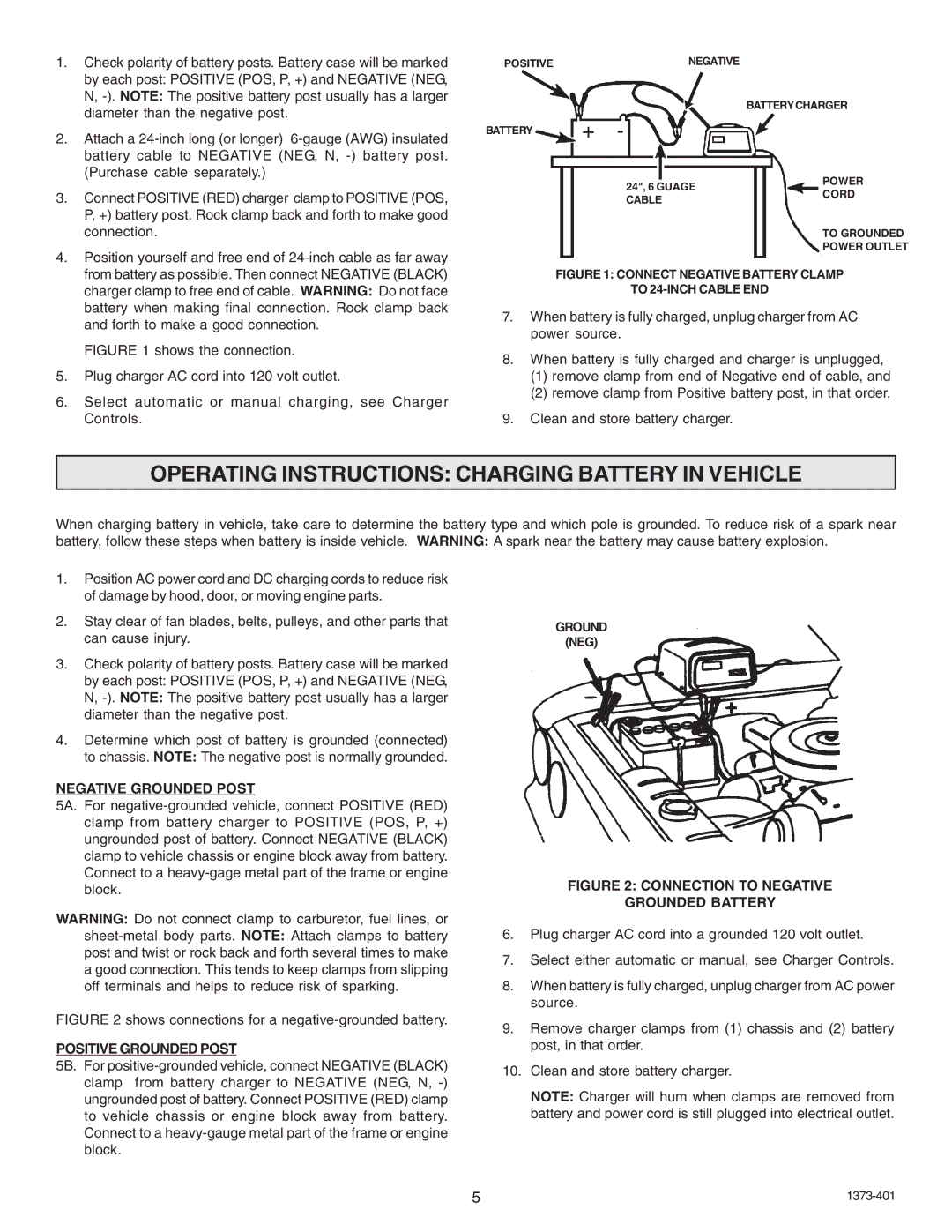
1.Check polarity of battery posts. Battery case will be marked by each post: POSITIVE (POS, P, +) and NEGATIVE (NEG, N,
2.Attach a
3.Connect POSITIVE (RED) charger clamp to POSITIVE (POS, P, +) battery post. Rock clamp back and forth to make good connection.
4.Position yourself and free end of
FIGURE 1 shows the connection.
5.Plug charger AC cord into 120 volt outlet.
6.Select automatic or manual charging, see Charger Controls.
POSITIVENEGATIVE
BATTERYCHARGER
BATTERY + -
24", 6 GUAGE | POWER | |
CORD | ||
CABLE | ||
| ||
| TO GROUNDED | |
| POWER OUTLET |
FIGURE 1: CONNECT NEGATIVE BATTERY CLAMP
TO 24-INCH CABLE END
7.When battery is fully charged, unplug charger from AC power source.
8.When battery is fully charged and charger is unplugged,
(1)remove clamp from end of Negative end of cable, and
(2)remove clamp from Positive battery post, in that order.
9.Clean and store battery charger.
OPERATING INSTRUCTIONS: CHARGING BATTERY IN VEHICLE
When charging battery in vehicle, take care to determine the battery type and which pole is grounded. To reduce risk of a spark near battery, follow these steps when battery is inside vehicle. WARNING: A spark near the battery may cause battery explosion.
1.Position AC power cord and DC charging cords to reduce risk of damage by hood, door, or moving engine parts.
2.Stay clear of fan blades, belts, pulleys, and other parts that can cause injury.
3.Check polarity of battery posts. Battery case will be marked by each post: POSITIVE (POS, P, +) and NEGATIVE (NEG, N,
4.Determine which post of battery is grounded (connected) to chassis. NOTE: The negative post is normally grounded.
NEGATIVE GROUNDED POST
5A. For
WARNING: Do not connect clamp to carburetor, fuel lines, or
FIGURE 2 shows connections for a negative-grounded battery.
POSITIVE GROUNDED POST
5B. For
GROUND
(NEG)
FIGURE 2: CONNECTION TO NEGATIVE
GROUNDED BATTERY
6.Plug charger AC cord into a grounded 120 volt outlet.
7.Select either automatic or manual, see Charger Controls.
8.When battery is fully charged, unplug charger from AC power source.
9.Remove charger clamps from (1) chassis and (2) battery post, in that order.
10.Clean and store battery charger.
NOTE: Charger will hum when clamps are removed from battery and power cord is still plugged into electrical outlet.
5 |
